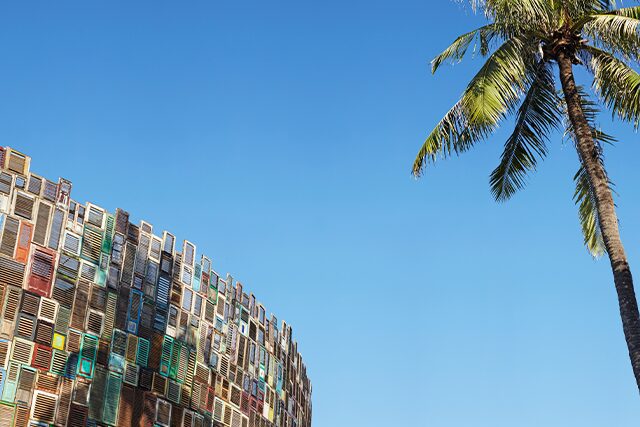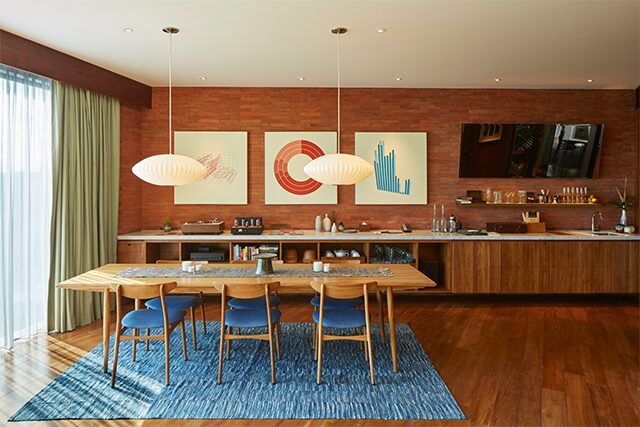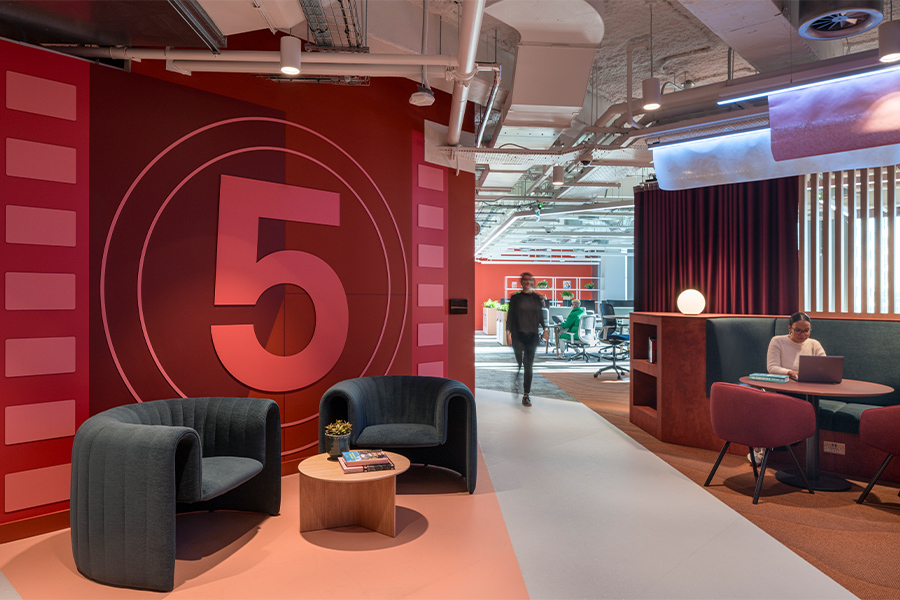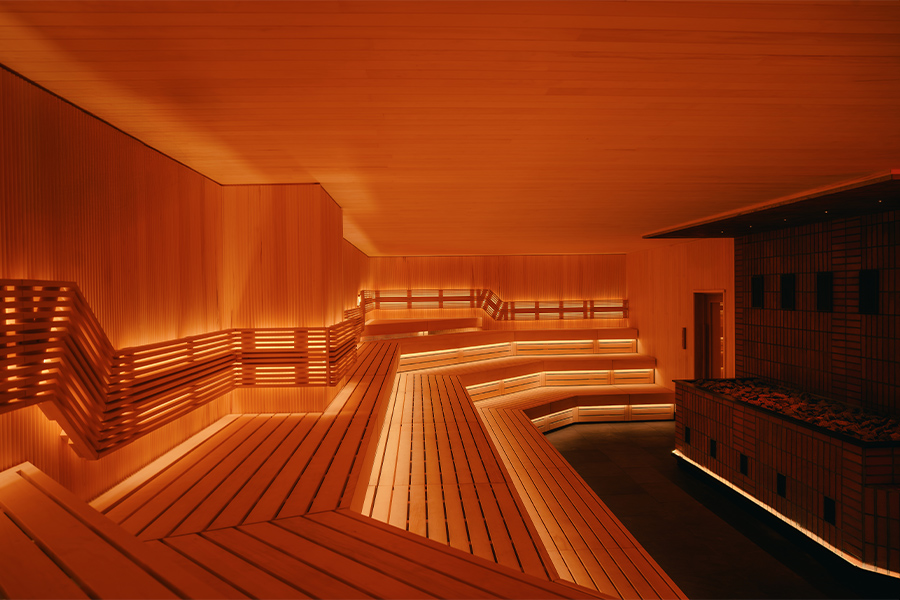An enveloping sense of serenity is often the draw of holing up in a resort, but at Desa Potato Head—the design, art, music, and wellness-fueled village fully debuting this May in Seminyak, Bali—cultural encounters and social interactions are as important as relaxing amid nature. The creative village, in fact, embraces a new type of wellness, offering guests and the local community the opportunity to experience Balinese culture firsthand via programming and festival celebrations.
Joining the breezy and sprawling Potato Head Beach Club and Katamama Suites, the Potato Head Studios is the final addition to the sustainably driven, 387,500-square-foot complex that is the vision of Ronald Akili, known for his Potato Head restaurants in Singapore and Hong Kong. For the design, OMA partook in an immersive design workshop for two weeks with Jakarta-based architect Andra Matin (who designed the Beach Club and Katamama Suites) to find inspiration in indigenous techniques and arts and crafts traditions. This led to honoring elements like the Balinese divination calendar in guestroom corridors.

The breezy Ijen restaurant is composed of recycled materials
“Architecturally, it allows us to experiment with and redefine the resort typology,” says David Gianotten, managing partner-architect at OMA, who oversaw the project from the firm’s Rotterdam and Hong Kong offices. “In Bali and other tropical destinations, resorts typically emphasize hotel guests’ exclusive enjoyment, detached from the life of the local community. We [wanted to] challenge this notion.”
Elevated above ground in a square shape, Potato Head Studios encompasses an exhibition space, a pool, a rooftop that doubles as a public sculptural park, subterranean disco, and 168 guestrooms, culminating in a public plaza at ground level. Designed to evoke traditional Indonesian elements, OMA revealed structural walls in the guestrooms so visitors can experience the tactility of the concrete, while furnishings, conceptualized by British designers Max Lamb and Faye Toogood, are fashioned by Balinese artisans from recycled plastic and other sustainable materials.

Repurposed window shutters adorn the Potato Head Beach Club exterior
Potato Head Studios is buoyed by locally sourced materials, such as the ijuk synonymous with thatched roofs, teak, and terrazzo crafted from chunks of concrete waste, as well as ceiling panels woven with recycled plastic bottles. In addition to handcrafted breezeblock walls, a mound-shaped restaurant is another highlight, flaunting a perforated ceiling that filters natural light. “Its fluid shape and blue palette contrast the rectangular floating ring built with reddish-brown concrete,” says Gianotten. “It was conceived as an extension of the surrounding landscape.”

The 57-suite Katamama building draws on Indonesian traditions

Potato Head Studios boasts a central ground-level public plaza

An aerial shot of the Desa Potato Head village in Seminyak, Bali
This article originally appeared in HD’s March/April 2020 issue.



